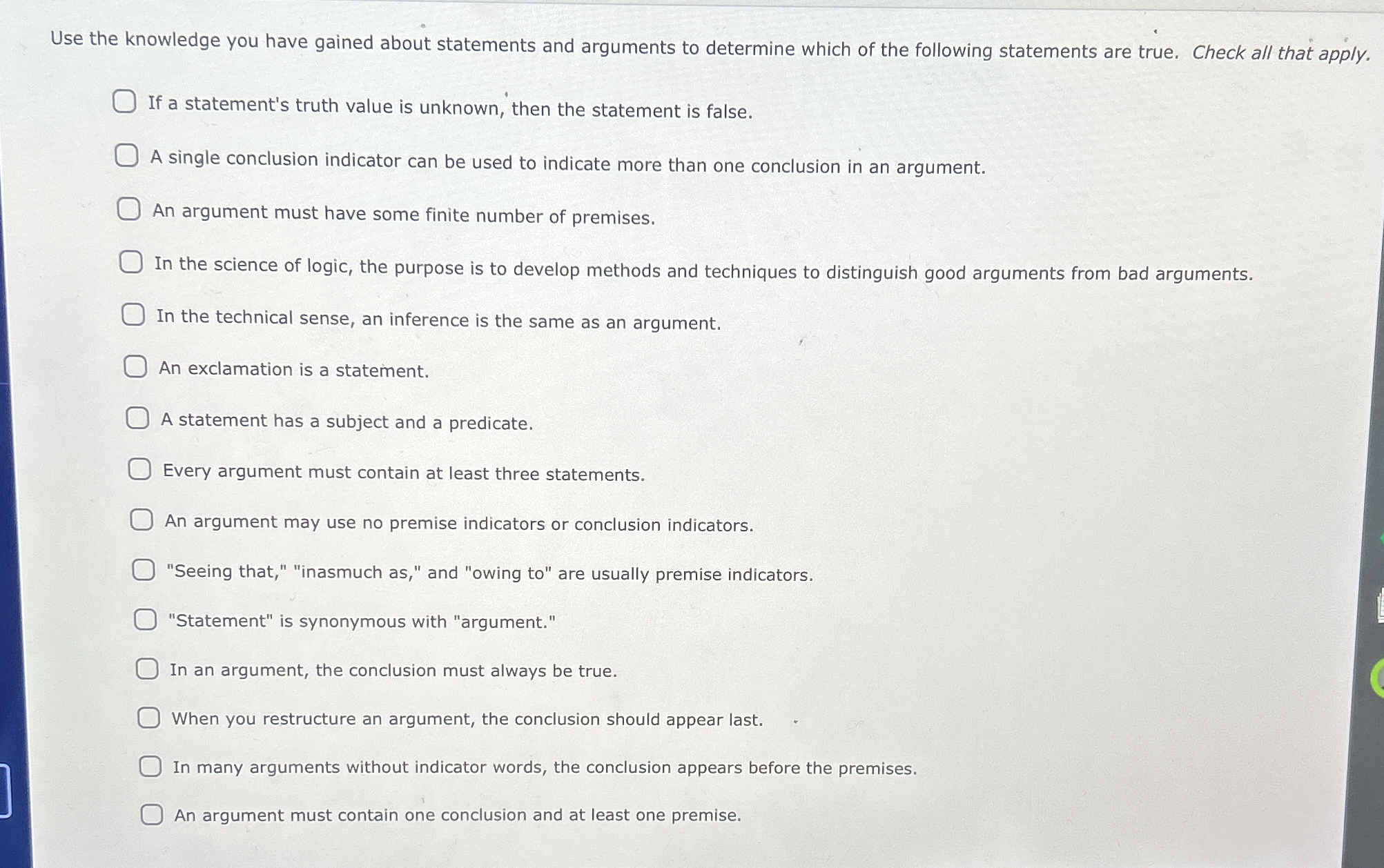Use the knowledge you have gained about statements and arguments to determine which of the following statements are true. Check all that apply.

Understand the Problem
The question is asking which statements about logic, arguments, and conclusions are true based on one's knowledge of the topic. It requires evaluating multiple claims regarding logical reasoning and arguments.
Answer
True: Finite premises, distinguish arguments, statement structure, no indicators needed, indicators, argument structure.
["An argument must have some finite number of premises.","In the science of logic, the purpose is to develop methods and techniques to distinguish good arguments from bad arguments.","A statement has a subject and a predicate.","An argument may use no premise indicators or conclusion indicators.","Seeing that,' 'inasmuch as,' and 'owing to' are usually premise indicators.","An argument must contain one conclusion and at least one premise."]
Answer for screen readers
["An argument must have some finite number of premises.","In the science of logic, the purpose is to develop methods and techniques to distinguish good arguments from bad arguments.","A statement has a subject and a predicate.","An argument may use no premise indicators or conclusion indicators.","Seeing that,' 'inasmuch as,' and 'owing to' are usually premise indicators.","An argument must contain one conclusion and at least one premise."]
More Information
Studying logical statements involves understanding premises, conclusions, and their indicators. Not all arguments require explicit indicators, and premises help build towards a conclusion.
Tips
A common mistake is assuming statements without explicit indicators are not arguments. Remember that arguments can be implicit.
AI-generated content may contain errors. Please verify critical information